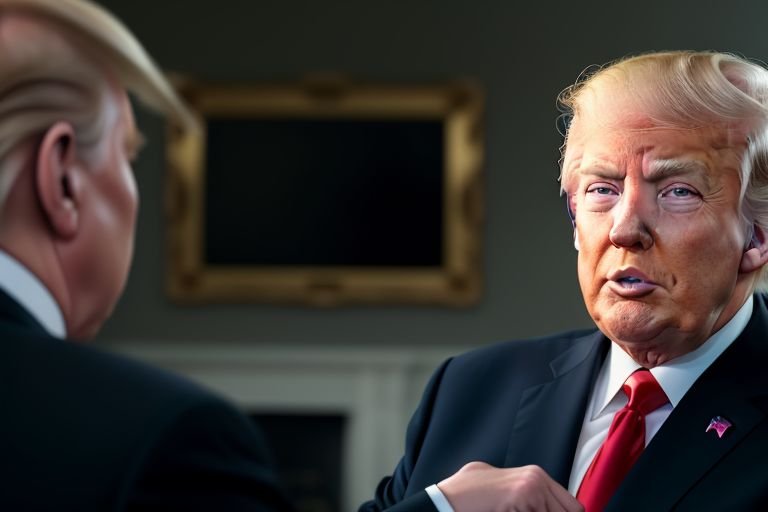Two recent announcements by the former President of the United States of America, Donald Trump about 2024 presidency, were given limelight. For instance, in a bid to capture the support of the blue-collar workers, Trump has pledged not to tax ‘overtime pay if he wins a presidential seat. Further, he has vowed that he will not make himself available for any future debate with his competitor – Kamala Harris – the VP of the United States.
If Trump was previously preaching the idea of tax reforms, he made the proposal clear at a campaign rally in Arizona when he was proposing to slash taxes on overtime pay within a broader tax cut plan. The proposal seeks to increase the pay that millions of Americans are taking home for their effort to work extra hours. This way Trump said that workers would get more pay because productivity would increase, and families who are facing high cost of living would benefit as well.
The former president’s advisors on the matters of economy say that the removal of taxes on overtime is possible to lead more saving across workers and several fields. They claim that this policy will be especially favorable to manufacturing employees, healthcare employees and construction employees most of whom work overtime. Some scepticism has, however, been voiced over ramifications of such a measure on federal revenues and difficulties of such targeted taxation measure.
Trump’s proposal on reducing overtime taxes is a part of his elaborate economical strategies, which includes lowering corporate taxes, exercising simplification of the taxes system and exercising protectionism in trade. The man has continued to refer to himself as the adapter of the working class and has condemned many policies of the present administration as unfriendly to the middle-class individual.
Apart from his aimed tax proposal, Trump stirs political controversy following his declaration not to engage in further debates with Kamala Harris, the Vice President. It has come bearing background of their first debate that was intensely Albertan and received much coverage in media.
People have done spirited responses to Trump deciding not to go further in the debates. His defenders have pointed out that there is no benefit in holding more debates for the former president and that he is most effective when speaking ‘on the street’, to the people. Critics, including some of Harris’s campaign advisors, have alleged that Trump has shirked responsibility and thereby deprived the public of a chance to watch the rivals spar on the crucial topics.
This means that the campaigns have deviated a little from the traditional campaign process in which presidents engage in debates before a particular election. Political scholars have opined that the action could be Trump’s strategy of trying to avoid giving out wrong information or engaging in any event that might harm his campaign.
Since Trump’s announcement, Harris’s campaign has called on the former president to step up and debate, saying that the American people should get to hear directly from both candidates. According to the Harris team, the Trump has had been reluctant to debate because he has confidence in his policies and administration record.
This comes as the battle for the ticket to the White House in the 2024 contest heated up with both sides aiming at swing states and seeking to turn out their bases. These are most probably such key issues that will feature in the following weeks’ discursive struggle as Trump’s tax cut pledge and debate boycott.
How the followers of both campaigns will react to Trump’s announcements still has to be seen as far as the overall race is concerned. His decisions, such as tax cuts, still matter to some political analysts who believe that these measures would appeal to the electorate that cares about its monetary situation. Critics say that this is a perfect strategy of avoiding the debates in this vein as it may be perceived as weakness or even an attempt to dodge an opponent.
However, come November, such factors will have to be considered bearing in mind other key factors that include, healthcare, climatic change, foreign policy among others. If the previous phase of the run-up to the election was characterized by debates and meetings, then the months to come will indicate a high level of campaigning: Trump will continue to persuade voters that he has a plan to take the country to the desired future, and Harris will do the same.
